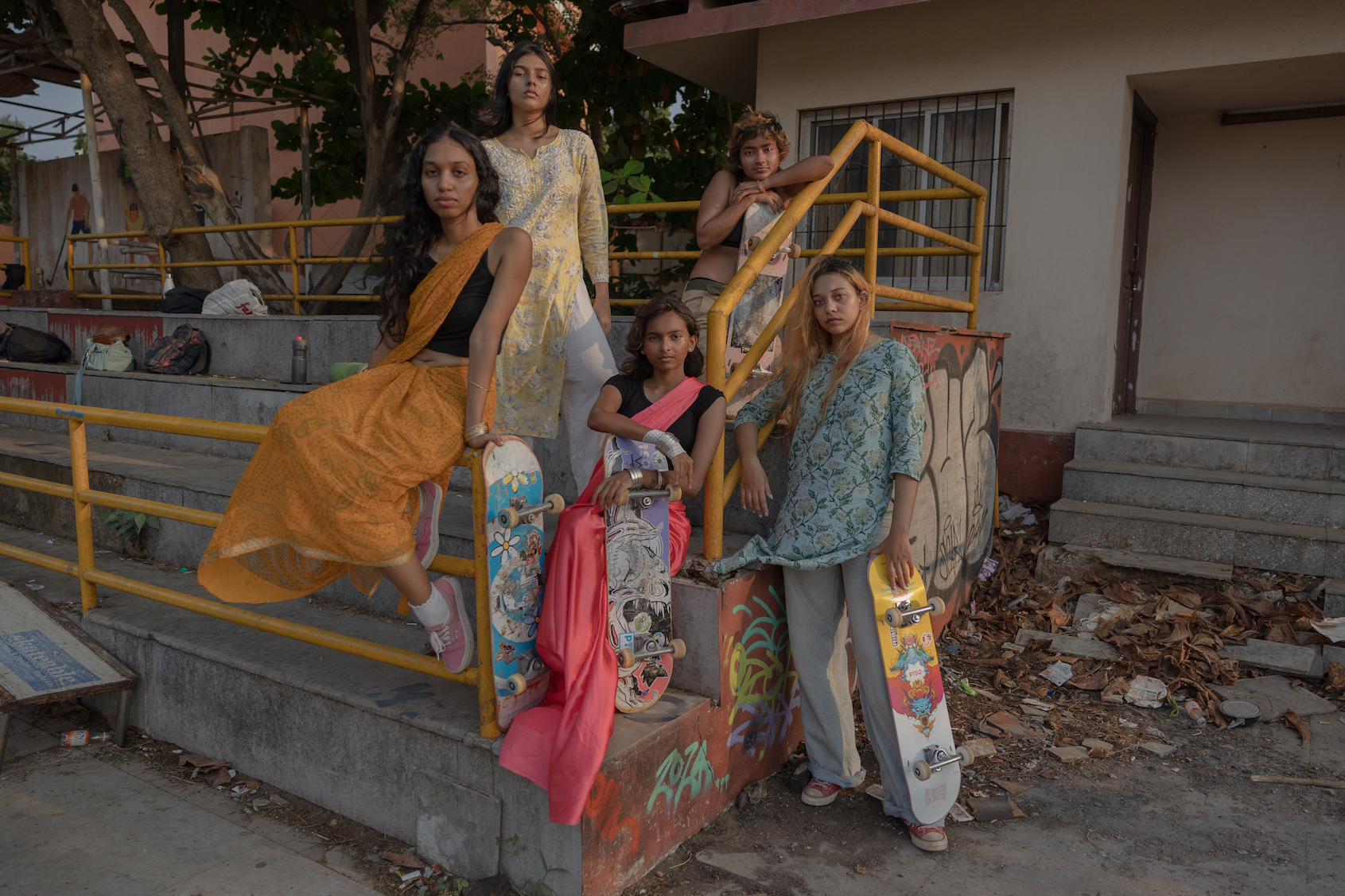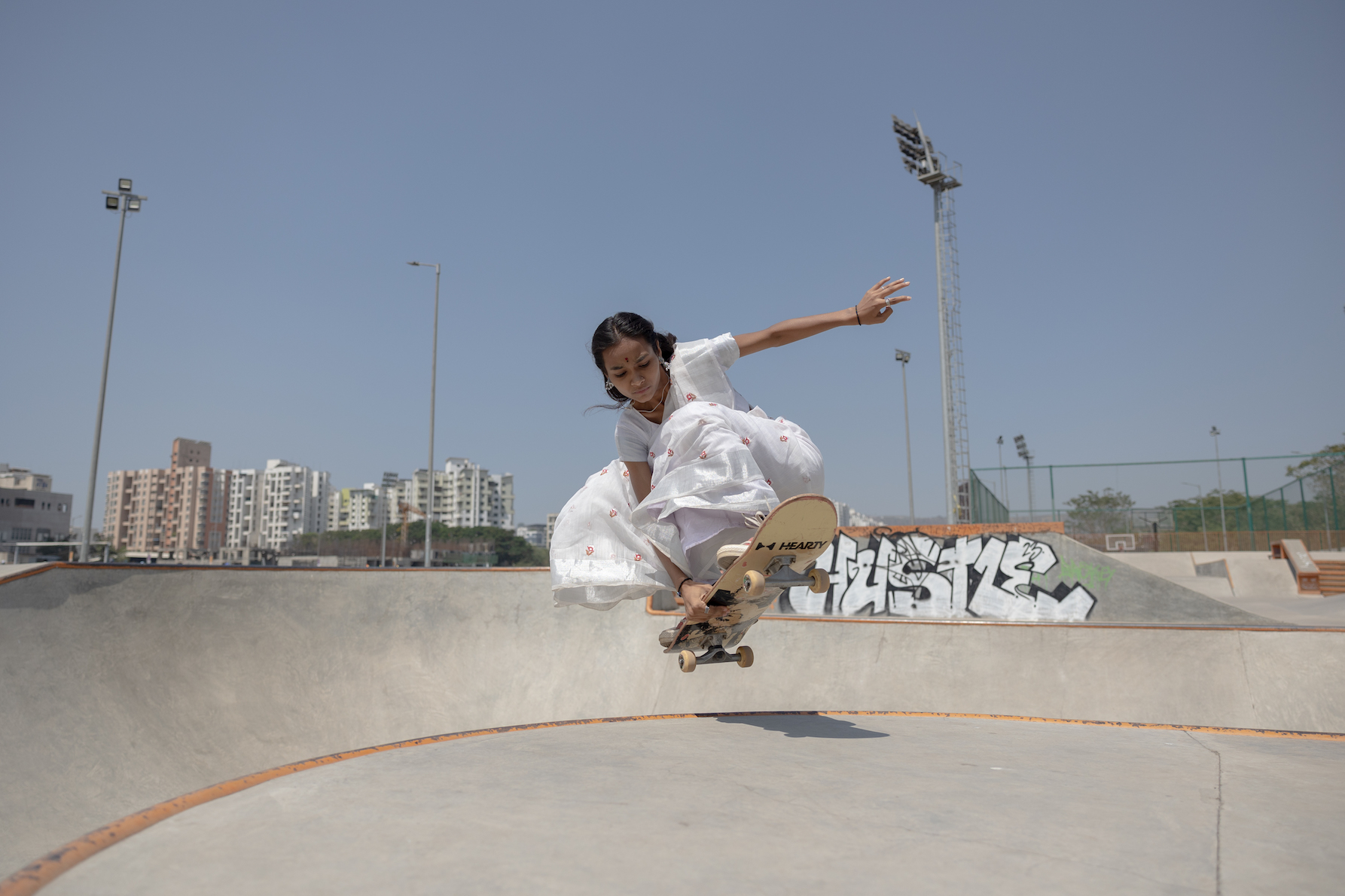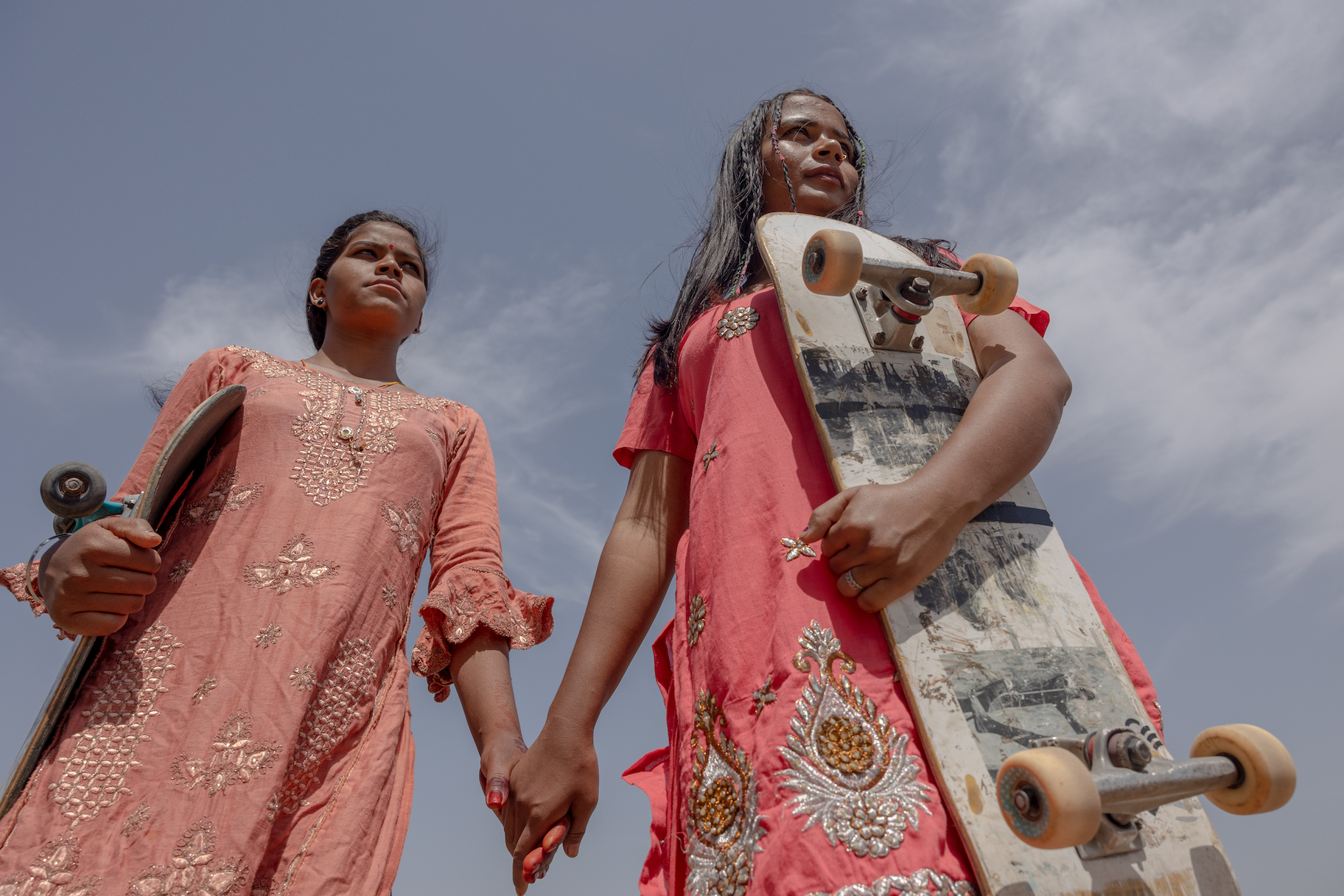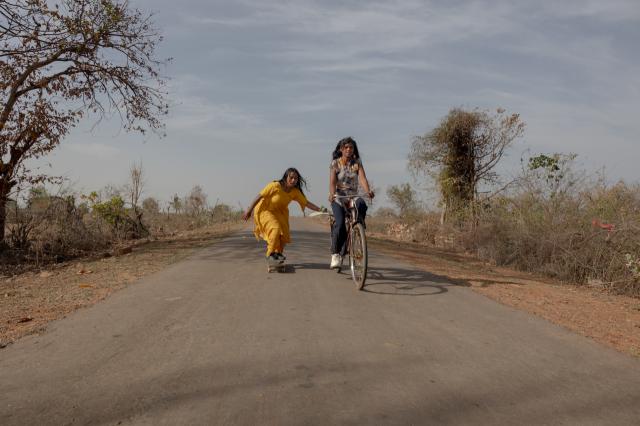With the announcement last weekend of the category winners for the prestigious Sony World Photography Awards, and an upcoming exhibition of entrants in London’s Somerset House, we caught up with Sport category winner Chantal Pinzi to ask about her ‘Shred The Patriarchy’ project.
The Italian photographer is based in Berlin, but her photo essay on the nascent Indian women’s skateboarding has a global resonance- and one which the judges clearly picked up on.
Here's what Chantal had to say about honour, resistance and responsibility.

How did the idea for 'Shred the Patriarchy' come about, and what inspired you to focus on women skateboarders in India?
Because I’m part of the skate community myself, and I've directly experienced the deep personal impact skateboarding can have. Getting on a board isn’t just about sport or tricks, it’s about learning resilience, determination, and how to never give up, no matter what. Skateboarding teaches you life. It teaches you to fall, to rise, and to keep going. And above all, when you’re on that board, you live freedom.
On a personal level, activism has always been present in my life. It started in adolescence, through the awareness of inhabiting a female body in a world that often turns that into a struggle. I grew up resilient, facing a system that penalized me in many ways. I’ve never accepted the idea that ‘it has always been this way’; instead, I’ve always tried to understand and challenge the structures of power, oppression, sexism, and misogyny. Choosing to focus on women skaters is part of that commitment. I see it as both a form of resistance and a responsibility.

What did you learn from the Indian women you photographed during this journey?
What I learned from the Indian women I photographed is that resistance can take many forms. Through simple yet revolutionary gestures, like skating, young Indian women make the patriarchal system tremble. They reclaim the freedom to imagine something different for themselves: to be a voice, not just an echo.

How have you seen skateboarding function as a tool for challenging gender norms and creating social change in India?
Unlike many other sports that developed thanks to institutional support and family encouragement, skateboarding grew in spite of rejection. Skaters were chased away, harassed, and discriminated against by adults and law enforcement. But from that hostile environment, something powerful emerged, a strong sense of community.
At its core, skateboarding doesn’t care who you are; it only asks that you show up, fall, get back up, and keep pushing. That kind of inclusivity is powerful, and it’s shaping a new generation that sees skateboarding not just as a sport, but as a platform for freedom and equality.
Especially for women, skateboarding can be a path to opportunity and an escape from the harsh realities of daily life. Skating often means defying deeply rooted cultural norms and reclaiming moments of freedom from exhausting social expectations.
In India, this is particularly true in rural areas, where gender inequality and caste discrimination still run deep. In the village of Janwaar, for example, a skatepark has become a platform for social change. Asha Gond, a young tribal woman, is one of the first to break through these barriers, using skateboarding to carve out a future beyond poverty and invisibility.
In these contexts, stepping into a skatepark becomes a radical and political act. Sport allows women to reclaim public space, challenge expectations, and rewrite their roles in a society that tries to dictate who they should be, not just for themselves, but for women everywhere.

How does skateboarding create opportunities for self-expression and freedom that might not otherwise be available to some women, in a moment where the worldwide ‘women in skateboarding’ moving is growing and blooming at pace?
The recognition of skateboarding as an Olympic sport, although still debated within parts of the skate community who hesitate to even define it as a ‘sport’, has undeniably changed the destiny of many- especially in specific social contexts. For some girls coming from conservative families, winning medals and bringing honour to their nation has become a valid reason to practice skateboarding and to be supported in that choice.
It’s sad that only through this kind of institutional validation they are allowed the freedom to pursue their dreams; but at least now, it’s possible for them to imagine a future in this discipline. A future that can offer not just personal expression, but also economic emancipation and social respect- factors that remain extremely important in many communities.
Despite the fact that women's skateboarding is booming, there is still a long way to go, especially when it comes to creating real opportunities and supporting female athletes. In India, for example, unlike some of their male counterparts, women are often not financially sponsored to participate in international competitions, and they receive lower prize money in national events.






